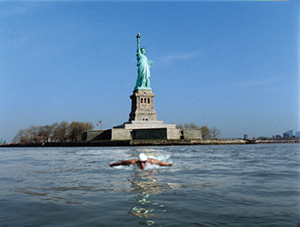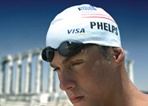Michael Phelps has danced in his underwear for “Guitar Hero,” washed his hair for Head & Shoulders, and climbed up peg walls for Under Armour. Eight years ago, he swam from Greece to the Statue of Liberty as a voice asked, “How do you get to the Athens 2004 Olympic Games? Practice. Or you can use Visa.”
Phelps was no certainty to become a legend, but even before his first eight medals in Athens, brands like Visa wanted to connect to the attributes that he and other Olympians possess: hard work, determination and perseverance, among others.
For companies and agencies that do their homework, aligning their brand attributes with the right athlete is the easy part. Maximizing that association and moving beyond a transactional relationship to a long-term partnership requires great effort on behalf of both parties. Not all Olympians and brands are positioned to be part of a lengthy relationship, but those that are typically have the following five commonalities:
1. Have a well-defined brand.
There will be more than 10,000 competitors at the London Games, and only those athletes who are able to communicate their personal brands will
 |
Visa took a chance on Phelps in 2004, and he became the centerpiece of its sponsorship.
|
attract significant interest from multiple suitors. An Olympian needs to understand what sets him or her apart as an athlete and what makes him or her fit with a brand and its marketing. One major factor here is an athlete’s back story: What makes this person unique?
In the same sense, brands must be able to articulate their attributes and values in a way that translates to how the athlete can bring them to life and express them in a variety of ways, whether it’s creative, social media or public relations. A brand’s relationship with an athlete will continue to be transactional if it can’t tie its long-term positioning to his or her identity.
2. Seek out partnerships, not sponsorships.
Olympians and their agents who make the planning stages of a brand’s marketing activities a priority generally foster the best relationships. They take active interest in the creative campaign and supporting elements and see how their role can evolve throughout a campaign to the betterment of both parties.
It’s nice when brands have the money for prime-time television commercials, but there are plenty of tangible benefits outside of ad campaigns. How can a company leverage the athlete partnership additionally? Office rallies and appearances, investor or industry events, cause-marketing efforts, and support for green initiatives are all opportunities that can drive relationship value.
3. Put digital and social media to work.
The new rules of engagement during the Olympics strictly limit commercial messages. Smart athletes will open their feeds to authentic brand messages prior to the Games and, while in London, use their feeds to provide fan access and insightful content — without breaking the rules. Coming out of the Games, an increased following on Twitter and Facebook will only serve to build an athlete’s brand appeal to consumers, something that can be leveraged into real dollars moving forward.
For brands, the new rules require additional planning and approvals well in advance of the Games. It also means being prepared to leverage an athlete’s success immediately coming out of London. Brands must have a plan in place today in order to benefit from an athlete’s performance in London.
4. Hire solution-driven people.
It sounds simple, but agents and representatives who are interested in mutual benefit make the best partners. Brands want team players and contributors and not gatekeepers and transaction holders. It’s paramount that managers who want long-term relationships for their athletes understand a brand’s business objective for the partnership.
Brand managers and agents work together much more than the athletes directly, so it’s vitally important that the relationship is built on solid ground. Brands must set expectations and establish open, honest communication, and fully understand the commitment to training and competitive requirements made of Olympic athletes. Seeing each other as allies, not adversaries, is critical to the overall success and length of the relationship.
5. Perform when in the limelight.
Being memorable is the most elusive achievement and arguably the most important attribute. Gold-medal-winning swimmers, gymnasts and sprinters will always reap the most commercial dollars, but there are still plenty of non-endemic opportunities for other athletes whose success is backed by memorable stories and imagery. Joey Cheek won a speed skating medal, but his dedication to charity turned him into a major story after the Turin Games in 2006.
Brands must heed the same advice. It’s not enough to plan and execute marketing activities before and during the Games. What comes next? There must be a comprehensive “win plan” in place to leverage an athlete’s performance coming out of the games when his or her popularity will be at its highest levels for the next four years.
The Olympics are a journey for athletes and brands. Not all accomplishments receive awards, and longevity is sometimes more rewarding than a single great performance. To be successful, you would be wise to follow the lead of Phelps: build a brand, form true partnerships, get social, hire great people, perform well and be memorable.
Jonathan Norman (jnorman@gmrmarketing.com) is senior director of client strategy at GMR Marketing. Follow him on Twitter @jonathan_norman.







